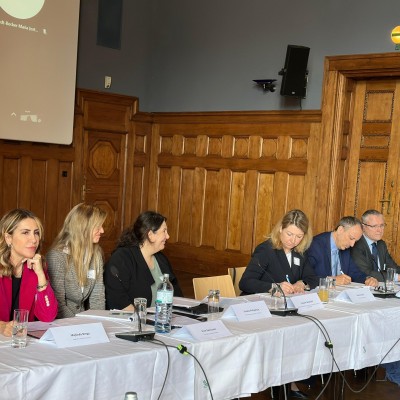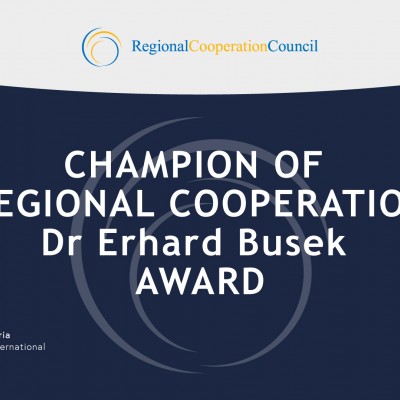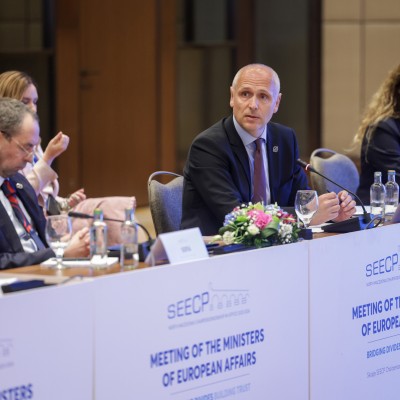RCC, EESC set to deepen civil society and youth engagement in region’s reform processes
12 July 2023
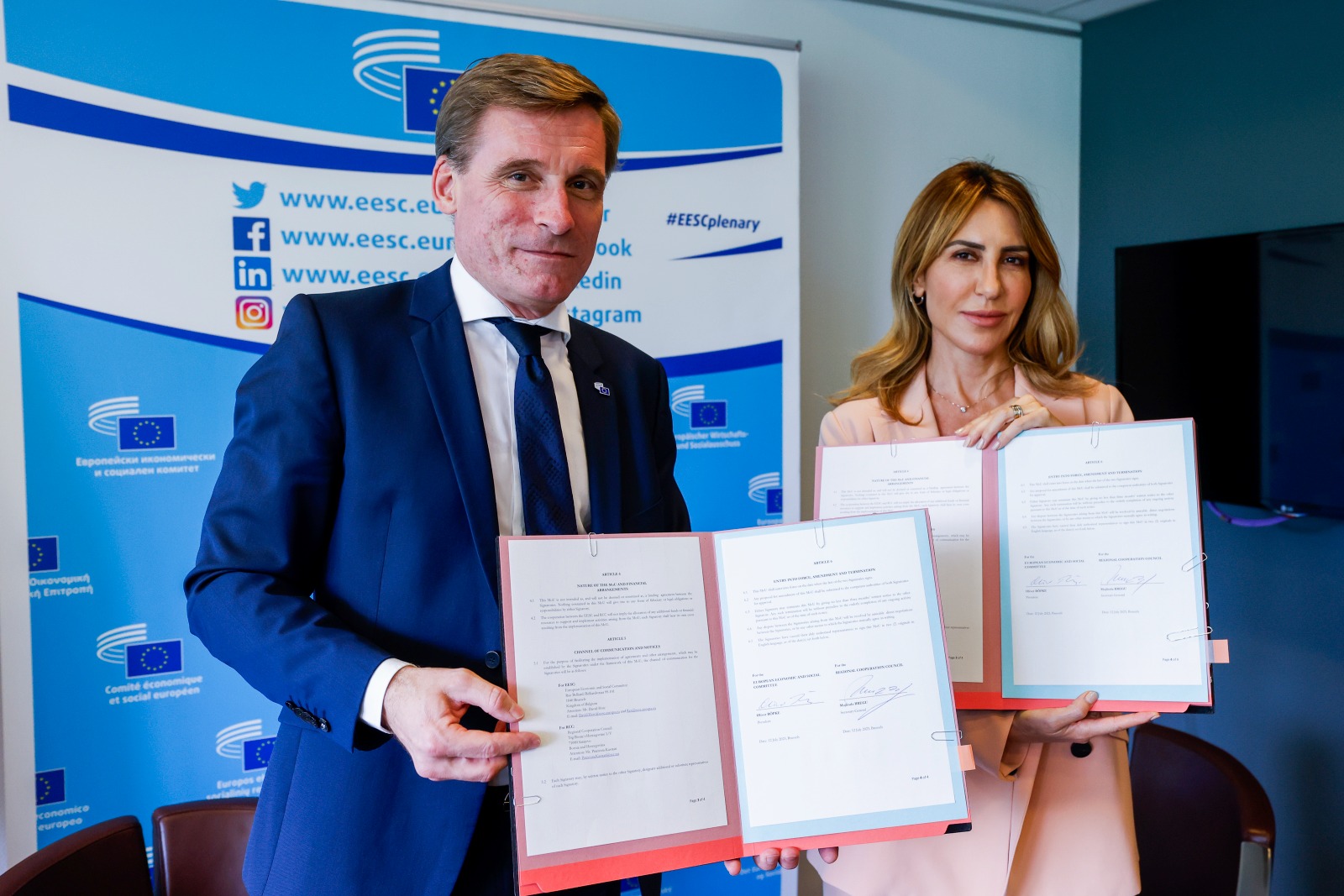
Secretary General of the Regional Cooperation Council (RCC), Majlinda Bregu, and the President of the European Economic and Social Committee, Oliver Röpke, signed a Memorandum of Understanding (MoU) on cooperation between the two organisations, in Brussels on 12 July 2023 (Photo: RCC/Jerome Hubert)
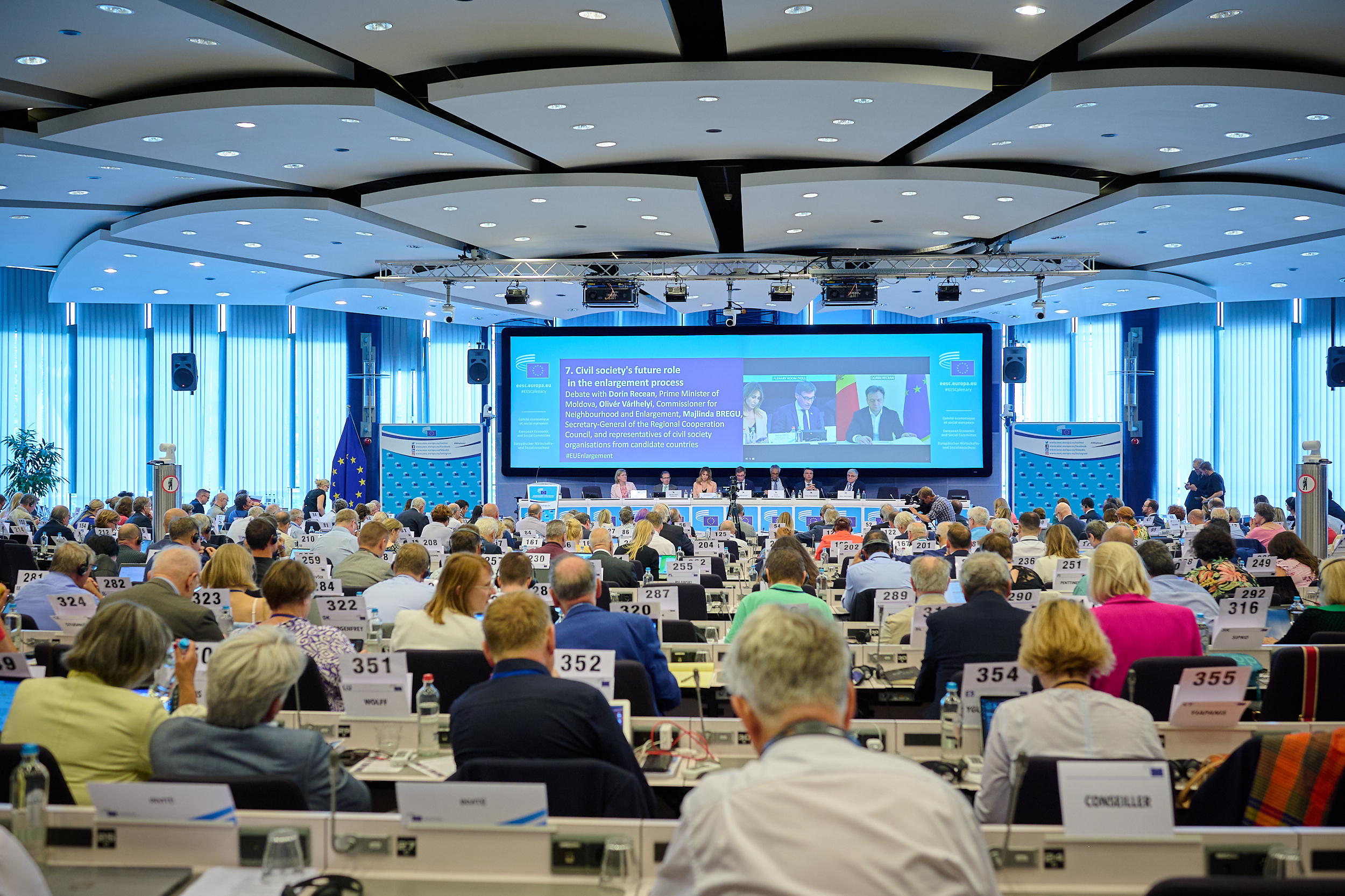
RCC Secretary General took part in the EESC 580th plenary session and a debate dubbed “The future role of civil society in the enlargement process" in Brussels on 12 July 2023 (Photo: RCC/Jerome Hubert)
Brussels: Bregu and Röpke sign memorandum of understanding between their respective organisations
Brussels – The Secretary General of the Regional Cooperation Council (RCC), Majlinda Bregu, and the President of the European Economic and Social Committee, Oliver Röpke, signed a Memorandum of Understanding (MoU) on cooperation between the two organisations, in Brussels today. The purpose of the MoU is to further and streamline cooperation in strengthening the inclusion of civil society and youth in regional agendas such as South East Europe 2030 Strategy, Common Regional Market, Green Agenda for the Western Balkans, and others.
“We in the RCC can’t imagine coordinating the regional efforts on the challenging Green Agenda for WB- without our CSOs Consultative Forum, nor coordinate the efforts towards a regional market without our chambers of commerce strong voice. Our youth policy labs, which enable dialogue platforms for co-designing policies relevant for youth employment and mental health – rest upon the collective intelligence and deliberative spaces created by youth organizations and CSOs working in the field of youth. Same goes for our Butterfly Innovation Award or our trademark Balkathon competition and women entrepreneurship agenda. The 76% of support for regional cooperation is a force to be reckoned with, which paired with the expertise and knowledge networks of our civil society sectors – can be a decisive contributor to our enlargement and integration agenda,” Bregu said.
“The European Economic and Social Committee is as a unique gateway between citizens, civil society, and EU institutions. The Regional Cooperation Council is an all-inclusive, regionally owned and led cooperation framework. Together, we will form a strong partnership to make a difference, I am sure of it. We want to work together with RCC to advance structured civil society and youth engagement in a wide range of areas that promote peace and prosperity in the region”, said Röpke.
The RCC and EESC intend to work together in supporting the ongoing socio-economic reforms in the region, promoting and mainstreaming the inclusion of civil society and its deeper engagement with the regional stakeholders, and enhancing dialogue between the EU and SEE through a structured youth and civil society engagement.
Following the signing ceremony, the RCC Secretary General took part in the EESC 580th plenary session and a debate dubbed “The future role of civil society in the enlargement process”, together with Mr Röpke, Oliver Várhelyi, EU Commissioner for Neighbourhood and Enlargement, Dorin Racean, Prime Minister of Moldova, and other high-level officials from the region and representatives of civil society organisations.
More information on Regional Cooperation Council – www.rcc.int
More information on European Economic and Social Committee - www.eesc.europa.eu


